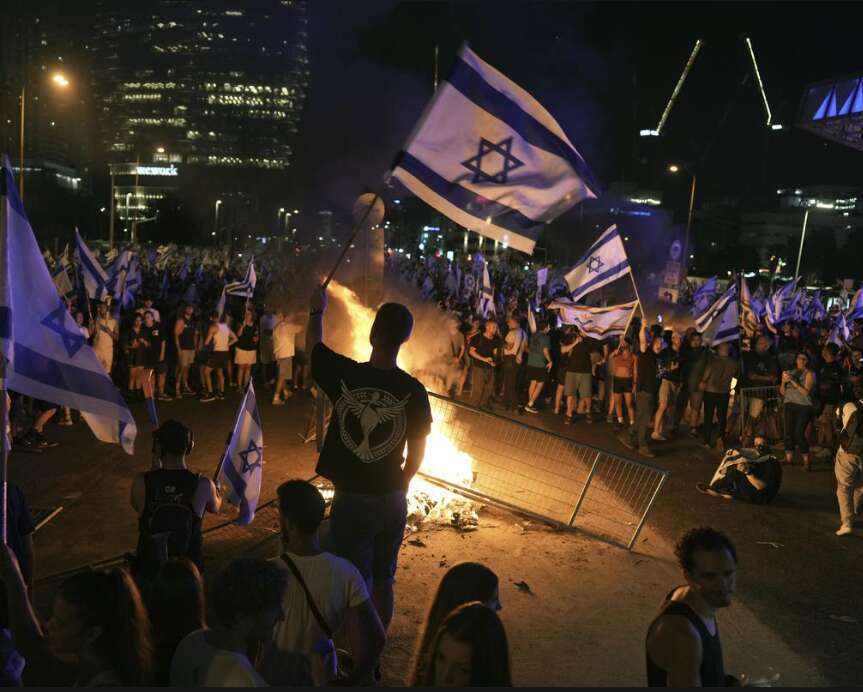Israel in Turmoil: Doctors on Strike, Supreme Court Under Attack, and Protests Shake the Nation as Controversial Law Threatens Democracy
Israeli Doctors Strike, Justices Cut Trip Short, and Labor Leaders Threaten General Strike as Government Weakens Supreme Court. Critics fear erosion of checks and balances and potential consequences for economy and security.
Thousands of Israeli doctors went on strike, labor leaders threatened a general strike, and senior justices cut short a trip abroad following the government's approval of a law that weakens the country's Supreme Court.
The legislation, part of Prime Minister Benjamin Netanyahu's judicial overhaul, has been met with widespread criticism, with opponents arguing that it will erode the system of checks and balances.
Four Israeli newspapers even covered their front pages in black ink to symbolize "a black day for Israeli democracy." The bill was unanimously passed by the governing coalition, which includes ultra-nationalist and ultra-religious parties, despite fierce popular resistance and warnings from the United States, Israel's closest ally.
Protests erupted across the country, with hundreds of thousands of people taking to the streets in Tel Aviv and Jerusalem. However, the government has indicated that this is just phase one of the overhaul, sparking concerns that further protests and unrest will follow.
The situation in Israel has become increasingly tense, with mounted police and water cannons being used to disperse protesters in Jerusalem, and at least 40 people being arrested. Videos have emerged showing violent clashes between police officers and protesters, with officers seen dragging, beating, and pushing demonstrators.
Moreover, thousands of officers in the military reserves have announced that they will no longer participate in voluntary service, potentially undermining the country's operational readiness. In addition, high-tech business leaders are considering relocating, and Moody's has warned of negative consequences for Israel's economy and security if divisions within the country persist.
The judicial overhaul also carries the risk of straining ties with the Biden administration, jeopardizing Israel's new alliances with Arab states, and deepening the conflict with the Palestinians. Analysts believe that the country may face a split or even the possibility of its demise.
Furthermore, the Israeli Medical Association, representing almost all doctors in the country, went on strike, with physicians expressing concerns that the new law will prevent them from fulfilling their oath to patients. The largest labor union in Israel, Histadrut, has also announced plans for a nationwide general strike.
The Supreme Court, which plays a critical oversight role in Israeli democracy, is now at the center of the crisis. Chief Justice Esther Hayut and five other senior justices rushed back from a trip to Germany to deal with the situation. However, any move by the court to strike down the new law could lead to a constitutional crisis and further confrontation with the Israeli government.
Supporters of the judicial overhaul argue that unelected judges should have limited powers to give elected officials more authority, while opponents fear it will undermine democracy and the country's checks on majority rule.
Protesters have raised concerns that the judicial overhaul is driven by the personal grievances of Netanyahu, who is currently on trial for bribery, fraud, and breach of trust.
The demonstrations have brought to the surface social and religious divisions within Israel, with protesters primarily coming from the country's secular middle class, while Netanyahu's supporters tend to be poorer, more religious, and reside in West Bank settlements or outlying rural areas. Israeli historian Tom Segev has described the situation as the beginning of a plan to change the country's basic values.




